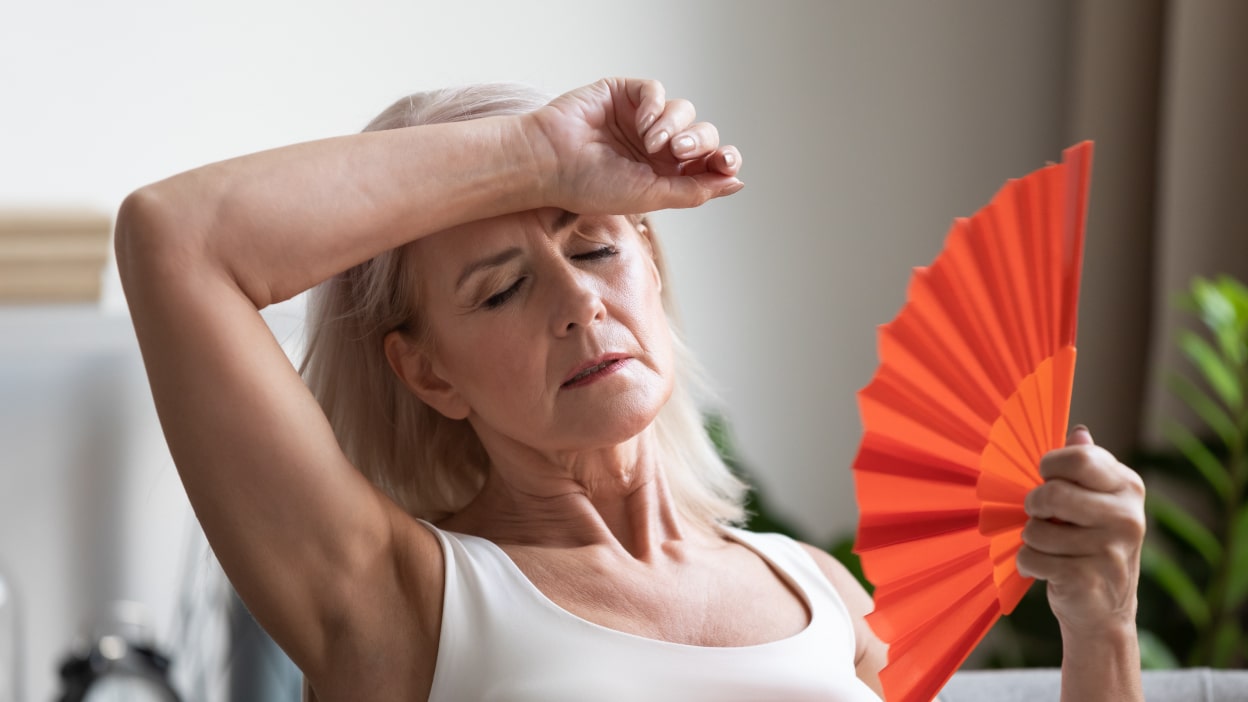Everyone's Menopause Health Needs Differ: How to Discover Yours
Everyone's Menopause Health Needs Differ: How to Discover Yours
Menopause is one of the most important health transitions women will face in their life, yet so many women feel overwhelmed with the many choices and decisions we have to make. There are several aspects to manage, from what to do regarding their symptoms to the increased health risks of heart disease and osteoporosis. I hear stories, over and over again, about doctors who are not willing to spend the time to sit down with their patients and answer their questions. In addition, many women report feeling that their doctors are stuck in the "one size fits all" mentality, forgetting that their patient is unique.
Every woman is an individual with their own medical and personal histories. Although there are similar suggestions that most women will benefit from, such as eating a healthy diet or getting some form of exercise most days of the week, it is still very important that everyone treating women in midlife remember these important points: there are many women and many choices; there is no "one size fits all" approach; and what works for one may not work for all.
Every Woman's Menopause Health Needs Differ: How Do You Discover Yours?
The best place to start is with a health care practitioner with whom you feel comfortable. This may be a gynecologist, family practice physician, nurse practitioner or midwife. Having a general exam that focuses on your needs as a woman in midlife is important. Also, if you would like to have a say in your health care decisions, you will want to work with the kind of provider who will present a variety of options, while always discussing benefits and risks with each. You choose the one that is most appropriate to your beliefs and values.
The following are recommendations of tests that I generally do during a baseline exam.
- Routine vital signs such as blood pressure and weight
- Thyroid exam, breast exam, pap smear and pelvic exam (plus height measurements after age 50), referral for colonoscopy and mammogram
- Complete blood panel to include: thyroid, liver, kidney, glucose, cholesterol & electrolyte function
- Dexa scan baseline at age 50 to rule out osteoporosis or osteopenia (thinning of the bone), with baseline measurements to determine how often to repeat this test
In addition to the above tests and exams, a discussion of menopause symptoms is important. The most common symptoms are: hot flashes, night sweats, sleep disturbances, fuzzy thinking, decreased libido and vaginal dryness. You may have all of these symptoms, a few of these symptoms, or if you do have any of these symptoms, you may feel that they are not bothering you and you prefer not to take anything for them. Remember everyone is different. How you decide on treatment options such as traditional hormone therapy, alternative ornaturopathic therapy is based on how much these symptoms are impacting your quality of life. If you can't function in your day-to-day activities, or if it feels like you're losing your mind, you need help to find your balance. A goal for any decision you make should be to provide you with improved health, quality of life and longevity.
Putting it all together, getting the best care - I love to use acronyms and just about every woman I know loves to shop for something. So I've come up with the acronym SHOP to make it simple. I will use it twice but with a different twist.
S.H.O.P ? first and most important: Select a Health care provider who is Open to your Point of view.
I'm going to use the acronym S.H.O.P again in a few different ways to help you focus on important issues when visiting your health care provider.
Schedule an appointment with your
Health care provider to discuss your
Options for developing your
Personal health profile
Select the symptoms of your unique
History and
Organize them in a list form.
Prioritize them from most to least bothersome.
Special emphasis should be placed on screening you for
Heart disease, diabetes, thyroid dysfunction, breast cancer, colon cancer, and
Osteoporosis, the results of which will be placed in your
Personal health profile. Make sure your health care provider discusses the results with you
Systematically focus first on the area of your
Health profile that needs immediate attention.
Odds are we all have one area that needs our
Personal attention.
Shift your attention from
Hoping you will retain your health as you age to knowing you have
Options. Then become
Proactive in making sound decisions about your health
I mentioned earlier that although all women love to shop for something, no woman likes to be SOLD. If you feel that, while visiting your health care provider, you have been given very few options, your provider is not listening to you, and you have been left out of the decision-making process. Here are a few suggestions if that happens.
First, let your doctor know you would like to explore other options, which will help bring the power back where it belongs ? with you. If you know of options you would like to explore, share them in the discussion. Try and avoid saying your best friend is taking a certain medication or supplement and doing well. This actually has no credence. Remember, we are all individuals. If your doctor is unwilling to offer you options, you have two choices: you can try the option your doctor is suggesting or you can decide to shop for another provider. Remember the decision is always in your hands. It's your body and your life.
Few journeys through life are uninterrupted. Menopause definitely has a way of getting our attention. But try not to let it get you completely off track. Take this "pause" as a signal to reflect, refresh and recharge. Thinking of it this way, menopause will no longer be perceived as an interruption!


